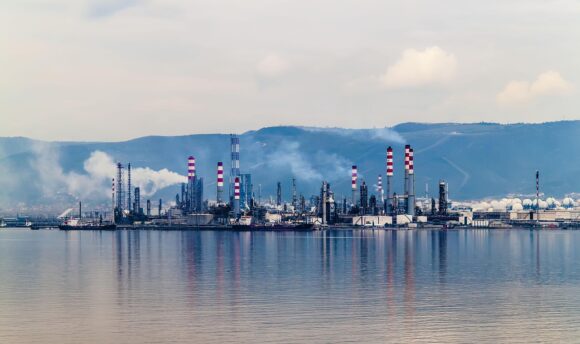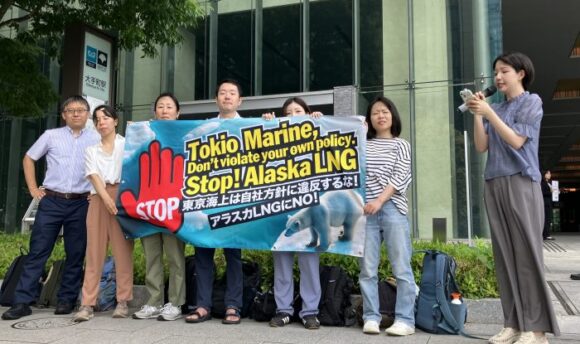On September 7, 2023, leading global insurance company Allianz published its first Net Zero Transition Plan.
Peter Bosshard, Global Network Coordinator of the Insure Our Future campaign commented:
Allianz’s transition plan is transparent, comprehensive, timely and in many ways ambitious but contains serious gaps when it comes to new gas infrastructure. If Allianz closes these loopholes, its transition plan offers a model which other insurers should follow.
Allianz aims to reduce the emission intensity of its commercial property & casualty business by 45% by 2030. This target is ambitious in principle but risks being undermined by several loopholes:
- Intensity targets can be reached by reducing absolute emissions or by keeping absolute emissions constant while adding low-emission business to the portfolio. We need to reduce absolute emissions in order to avoid climate breakdown and as stipulated by the NZIA’s target setting protocol (p. 25), Allianz needs to complement its intensity target with a bold target for reducing absolute emissions.
- The NZIA/PCAF working group, of which Allianz was a member, didn’t come up with a methodology to measure the life-time emissions of new fossil fuel projects and so the NZIA target setting protocol declared the business lines which are used to insure new projects out of scope. Allianz benefits from this loophole in that it continues to underwrite new LNG terminals, gas pipelines and power plants without accounting for their emissions. Allianz needs to strengthen its oil and gas policy and exclude cover for any new gas infrastructure without delay.
- Finally, Allianz only measures the emissions of customers which are already reporting them. Like Fidelis, Allianz should routinely require its commercial customers in relevant sectors (including power and energy) to report their greenhouse gas emissions, including their Scope 3 emissions.
Regine Richter, campaigner at Urgewald commented:
It’s a pity that Allianz didn’t use the opportunity of the transition plan to announce tightening its oil and gas policy, in particular on midstream and downstream gas and we expect that as a climate leader they will do so in the near future.
In terms of assets, the 2030 emission targets for proprietary investments use 50% reduction of absolute emissions for traded equity/corporate bonds, which sounds good. It will be important that Allianz reports on how they want to reach that target and
how they succeed on the way.
While it is positive that they address their subsidiaries Pimco and Allianz Global Investors (AGI) in the transition plan, there is no reduction ambition in how they address them: Allianz stresses that the net-zero commitment and targets don’t apply to assets managed on behalf of third parties, which is the bulk of Pimcos and AGIs business. So both are mentioned only for helping clients that want to decarbonise their portfolios with specific offers. So this part of the transition plan is more about gaining new clients than actually reducing emissions.
Generally it is positive that Allianz explicitly commits not to use offsets to reach the targets, at least until 2030.
Melanie Oldham, community activist with Better Brazoria Clean Air and Clean Water commented:
As a resident of Freeport, TX—an environmental justice community just miles away from the Freeport LNG gas export facility—I am pleading with Allianz to close its gas infrastructure loophole in its net zero transition plan and rule out insuring the Freeport LNG plant ahead of the October 1st deadline.
A year ago, an inferno erupted with an explosion 450 feet high. Since then, we have lived in fear every day. This is on top of the poisonous air pollution that we breathe daily, impacting our long-term health. Gas infrastructure is risky, as a global insurer and supposed “climate leader” in the insurance industry, Allianz should lead by example.
Watch Melanie’s video to Allianz leadership:
Melanie Oldham lives on the Gulf Coast in Freeport, TX. She is one community member of thousands that would be harmed by an explosion from the dangerous methane gas facility near her home.
We join Melanie in pleading with @Allianz to stop insuring the risky methane gas plant. pic.twitter.com/KPduJudyFi
— Insure Our Future U.S. (@Insure_Future) September 8, 2023



